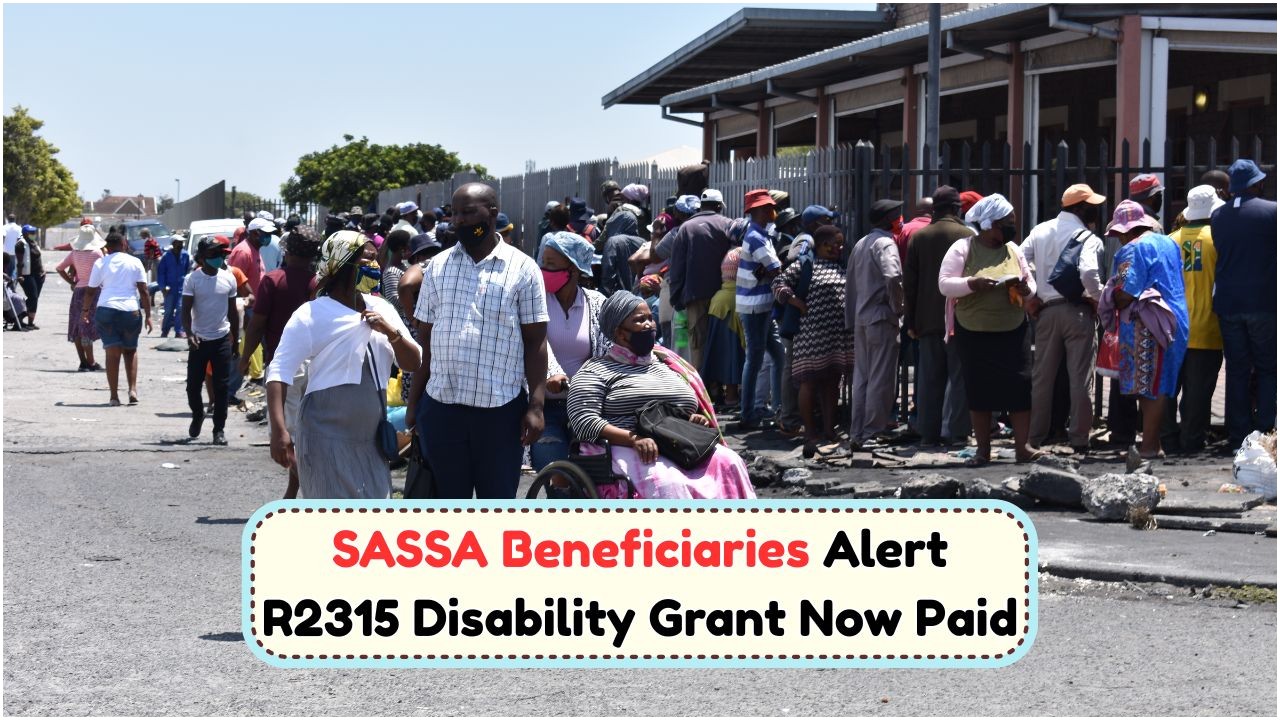Mobile ID Verification Units in Rural South Africa: In an effort to enhance accessibility and ensure that no South African is left behind, September marks an important milestone as mobile ID verification units are introduced across rural areas in South Africa. This initiative aims to address the challenges faced by residents in remote locations who struggle to access essential identification services. By deploying these mobile units, the government seeks to bring critical services directly to the people, ensuring that everyone has the opportunity to obtain or renew their identification documents seamlessly. This move is expected to significantly improve service delivery and foster inclusivity in regions that have historically been underserved.
Bringing Identification Services Closer to Home
Introducing mobile ID verification units is a game-changer for rural communities in South Africa. These units are equipped to handle a variety of services, from issuing new identification cards to updating existing details. The goal is to reduce the travel burden on rural residents, who often have to journey long distances to reach the nearest Home Affairs offices. This initiative is particularly beneficial for the elderly, disabled, and those without reliable transportation, ensuring they can access essential services without incurring additional costs or time. By facilitating easier access to identification services, the government is taking crucial steps towards eliminating barriers and promoting equality among its citizens.
- Enhanced accessibility for remote communities
- Reduction in travel time and costs
- Improved service delivery efficiency
- Support for vulnerable groups
- Promoting social and economic inclusion
The Importance of Mobile ID Units in Rural Development
The deployment of mobile ID verification units is not only a matter of convenience but also a critical aspect of rural development. Identification documents are essential for accessing a wide range of services, including healthcare, education, and financial opportunities. By ensuring that every citizen has valid identification, the government is laying the groundwork for more robust economic and social integration. These mobile units also serve as a bridge between rural communities and government services, fostering trust and collaboration. As the units travel to different areas, they provide a unique opportunity for government officials to engage with local communities, gather feedback, and tailor services to better meet the needs of the populace.
| Feature | Description |
|---|---|
| Mobile Connectivity | Ensures seamless service delivery in remote areas |
| Portable Equipment | Allows for on-site document processing |
| Trained Personnel | Provides expert assistance and guidance |
| Multi-Service Capability | Offers a range of identification services |
How Mobile Units Will Operate Across Rural SA
The operation of mobile ID verification units in rural South Africa is carefully planned to ensure maximum reach and efficiency. Each unit is equipped with state-of-the-art technology to process identification documents on-site. The units follow a rotational schedule, visiting different communities on designated days. This schedule is communicated in advance through local media and community leaders to ensure that residents are informed and prepared. The mobile units are staffed by trained personnel who are capable of handling various queries and guiding residents through the process. By operating on a rotational basis, the units can cover vast areas and serve a large number of people within a given timeframe.
 Free Solar Water Heating Pilot Launches in 8 SA Townships This September 2025 – Apply Now!
Free Solar Water Heating Pilot Launches in 8 SA Townships This September 2025 – Apply Now!
- Scheduled visits to rural communities
- Advance communication through local channels
- On-site processing of identification documents
- Trained staff for assistance
Challenges and Solutions in Implementing Mobile ID Units
While the introduction of mobile ID verification units is a positive step, there are challenges that need to be addressed to ensure the success of this initiative. One of the primary challenges is maintaining the security and integrity of the identification process in a mobile setting. To counter this, the units are equipped with secure, encrypted systems that protect personal data. Another challenge is ensuring that all residents are aware of the schedule and know when and where to access the services. This is managed through extensive communication campaigns that utilize local radio, community meetings, and social media platforms. Additionally, the government is working closely with local leaders to ensure that the units are accessible to all, including those in the most remote areas.
| Challenge | Solution |
|---|---|
| Data Security | Encrypted systems and secure protocols |
| Communication | Local media and social media campaigns |
| Accessibility | Partnerships with local leaders |
| Resource Allocation | Efficient scheduling and staffing |
Future Prospects for Mobile ID Services
Looking ahead, the success of mobile ID verification units in rural South Africa could pave the way for similar initiatives in other areas. The government is exploring the possibility of expanding these services to include other essential functions, such as voter registration and social grant applications. By leveraging mobile technology, South Africa can continue to break down barriers and provide equitable access to government services for all its citizens. As the country moves towards a more integrated and inclusive society, these mobile units represent a significant step forward in achieving these goals.
- Potential expansion to urban areas
- Integration with other government services
- Increased focus on digital transformation
FAQs About Mobile ID Verification Units
As South Africa embraces mobile ID verification units, many residents have questions about how these units will operate and how they can benefit from the services offered. In this FAQ section, we’ll address some of the most common queries to help you understand this initiative better.
- What services do mobile ID verification units provide? Mobile units offer a range of services, including issuing new IDs, renewing expired documents, and updating personal information.
- How do I know when a mobile unit will visit my area? Schedules are communicated through local media, community leaders, and social media platforms to ensure everyone is informed.
- Are the services provided by mobile units secure? Yes, all services are conducted using secure, encrypted systems to protect personal information.
- Can I use the mobile unit services if I live in an urban area? The current focus is on rural areas, but there are plans to extend services to urban locations in the future.
- How can I prepare for a visit from a mobile ID unit? Ensure you have all necessary documents ready and follow any specific instructions provided by local authorities or the mobile unit team.
Supporting Rural Development Through Improved Accessibility
By deploying mobile ID verification units, South Africa is making strides towards improving accessibility to essential services for rural populations. This initiative not only provides immediate benefits by reducing travel and associated costs but also supports long-term development goals by ensuring that all citizens have the identification they need to access vital services. The government’s commitment to enhancing service delivery in rural areas demonstrates a dedication to fostering equality and inclusivity throughout the country. As these units gain momentum, they are set to become a cornerstone of rural development and empowerment.
- Reduced travel distances for rural residents
- Immediate access to identification services
- Enhanced community engagement
Key Takeaways on Mobile ID Verification Units
| Aspect | Detail |
|---|---|
| Objective | Improve accessibility to identification services |
| Target Audience | Rural communities in South Africa |
| Key Benefits | Reduced travel, cost savings, improved service delivery |
| Future Plans | Expansion of services and integration with other government functions |
Empowering Communities Through Government Initiatives
With the rollout of mobile ID verification units, South Africa is taking a proactive approach to bridging the gap between rural communities and essential government services. This initiative empowers individuals by providing them with the necessary tools to access opportunities and participate fully in society. By ensuring that identification services are within reach of every citizen, the government is promoting social equity and facilitating the development of resilient, self-sufficient communities. As these mobile units continue to operate throughout the country, they stand as a testament to the power of innovative solutions in driving progress and transformation.
Preparing for the Arrival of Mobile ID Units
As mobile ID verification units begin their journey across rural South Africa, residents are encouraged to prepare for their arrival by gathering necessary documentation and staying informed about the units’ schedules. By participating in this initiative, individuals can ensure they have the identification needed to access essential services and opportunities. Community leaders and local media play a pivotal role in disseminating information and assisting residents in understanding how to take advantage of the services offered by these mobile units. Together, they are helping to create a more inclusive and equitable society.
- Gather all relevant identification documents
- Stay informed about mobile unit schedules
- Engage with community leaders for assistance
Collaborative Efforts for a Brighter Future
| Stakeholder | Role |
|---|---|
| Government | Deploys and manages mobile units |
| Community Leaders | Facilitate communication and support |
| Local Media | Disseminates information on schedules |
| Residents | Participate and utilize services |
As South Africa continues to make strides in enhancing service delivery to rural areas, the collaborative efforts of the government, community leaders, and residents are essential in realizing the full potential of mobile ID verification units. By working together, they can ensure that these services are accessible, efficient, and beneficial for all, paving the way for a brighter future for South Africa’s rural communities.






